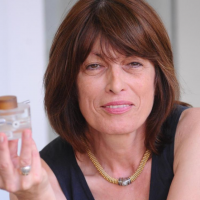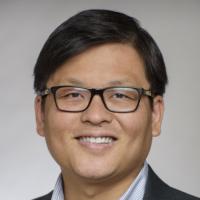CDCR Leadership
Gordana Vunjak-Novakovic, PhD
- Director, Center for Dental and Craniofacial Research (CDCR)
Gordana Vunjak-Novakovic's diverse team of engineers, clinicians, and scientists are developing innovative tissue engineering technologies for improving human health. Our Laboratory for Stem Cells and Tissue Engineering is interested in whole organ engineering for regenerative medicine, tissue models for biological research, and “organs-on-a-chip” platforms for disease modeling and drug development.
To this end, her team directs the human cell differentiation and assembly into functional tissues using a “cell-instructive” approach based on tissue-specific scaffolds (providing templates for tissue formation) and advanced bioreactors (providing environmental control, molecular and physical signaling). Her work has been published in Nature, Cell, Nature Biotechnology, Nature Medicine, Nature Biomedical Engineering, Nature Communications, Nature Protocols, PNAS, Cell Stem Cell, Science Advances, and Science Translational Medicine, and is highly cited (h=126).
Vunjak-Novakovic’s laboratory is a home to the national Tissue Engineering Resource Center funded by NIH to foster tissue engineering for medical impact, and are actively collaborating with colleagues at both campuses of Columbia University, nationwide, and around the world. To translate their science into new therapeutic modalities, their lab has launched four biotech companies: epiBone (epibone. com), Tara (tarabiosystems.com), Xylyx Biosolutions (xylyxbio.com) and Immplacate (immplacatehealth.com) that are all based in New York City. Over the last 30 years, Vunjak-Novakovic has mentored over 150 trainees (postdocs, clinical fellows, MD/PhD and PhD students, junior faculty).
She has a BS, MS, and PhD in chemical engineering from the University of Belgrade and specialized in biomedical engineering as a Fulbright Fellow at MIT. She is a member of the Academia Europaea, Serbian Academy of Arts and Sciences, the National Academy of Engineering, the National Academy of Medicine, the National Academy of Inventors, and the American Academy of Arts and Sciences.
Research Interests:
Regenerative engineering of the human lung, heart and bone Organs-on-a-chip platforms, (heart, liver, vasculature, skin, bone, tumors)
Tissue models of disease
Tissue platforms for drug screening Precision medicine
![Gordana Vunjak-Novakovic, PhD]()
Mildred C. Embree, DMD, PhD, MS
- Associate Director, Center for Dental and Craniofacial Research (CDCR)
Dr. Embree conducts cutting edge research in both an academic and clinical setting with the goal of translating basic science into clinical practice. Dr. Embree's laboratory focuses on TMJ biology and disease, stem cells and stem cell-based cartilage and bone regeneration. Dr. Embree and her team use a combination of stem cell/molecular biology methods and clinical questions in shaping the direction of scientific projects. Overall, Dr. Embree's research endeavors are geared toward improving the current treatment modalities for patients with TMJ and musculoskeletal diseases.
Research Interests:
Cartilage biology
Craniofacial growth and development
Osteoarthritis
Stem Cell Biology
TMJ biology

Chang Hun Lee, PhD
- Associate Director, Center for Dental and Craniofacial Research (CDCR)
Dr. Lee received his BS in Biomedical Engineering from Inje University (South Korea) in 2002. He completed his Ph.D. in Biomedical Engineering from Columbia University in 2010 and received postdoctoral training until 2014 at Center for Craniofacial Regeneration in College of Dental Medicine. Dr. Lee is currently an Assistant Professor of Craniofacial Engineering (in Dental Medicine).
Dr. Lee’s research is focused on musculoskeletal and craniofacial tissue regeneration by harnessing endogenous stem/progenitor cells using advanced scaffold systems, control-delivery system, and translational animal models. In his early research career, Dr. Lee developed an innovative strategy for tissue regeneration by homing body’s own stem cells into defect sites. He applied the new strategy for successful regeneration of synovial joint condyle, tendons, and knee meniscus that resulted in publications in prestigious journals, including The Lancet, Science Translational Medicine, and Journal of Clinical Investigation. His recent publication in Journal Clinical Investigation was highlighted in New England Journal of Medicine in 2016. For the last 10 years of his research career including graduate programs, Dr. Lee’s publications have been cited over 2,200 times (as of Sept 2017), showing the high impact of his research in the field.
Dr. Lee is a recipient of New Investigator Recognition Award at Orthopedic Research Society (2013), Best Research Mentor Award from Bergen Academy (2011), Webster Jee Young Investigator Award at International Chinese Hard Tissue Society (2009), Young Investigator Award at Society of Physical Regulation in Biology and Medicine (2008), University Dean Award from Inje University (2004), and International fellowship award from Korea Science and Engineering Foundation (2003). He was an invited speaker at Society for Biomaterials (2014) and Gordon Research Conference on Collagen (2011). He served as an invited moderator and reviewer at the annual meeting of Orthopedic Research Society (2016) and a journal reviewer for Journal of Clinical Investigation, Journal of Orthopedic Research, Tissue Engineering, Biomaterials, and Macromolecular Bioscience, Plos One, Advanced Healthcare Materials, and more. Dr. Lee was a member in NIH BTSS study section (2015), a grant review panel in Maryland Industrial Partnerships Program (MIPS) (2016) and European Research Council (2017).
To date, Dr. Lee has mentored over 30 post-graduate, dental and undergraduate students. Many of his students received research awards, including Birnberg research awards, AADR fellowship award, ASDA best presentation award, Melvin Morris Awards, and Hatton Award finalist.
Research Interests
3D printed scaffolds system as controlled delivery system for complex tissue regeneration
Orthopedics and musculoskeletal tissue engineering
Regeneration of orthopedic and dental tissues by harnessing endogenous stem cells

Christopher Ricupero, PhD
- Center Manager, Center for Dental and Craniofacial Research (CDCR)
Dr. Ricupero's received his PhD in Neuroscience and research career focuses on genetic engineering strategies and stem cell disease modeling for neurodevelopmental and craniofacial disorders. He is developing direted cell fate programming approaches through genomic and epigenetic editing (CRISPRa/CRISPRi). How a stem or progenitor cell differentiates and maintains its identity through the combination of transcription factors and epigenetic regulation has been a central theme to his research. Our goal is to leverage this programmable gene regulation towards innovative regenerative medicine therapies with iPS, neural and mesenchymal stem cells.
Research Interests:
Stem Cell Disease Modeling
Programmable Gene Regulation
Epigenetic Editing
CRISPR Cas9/Cas13
Neurodevelopmental Disorders (Angelman Syndrome, Dup15Q)
Craniofacial Disorders
Regenerative Medicine




